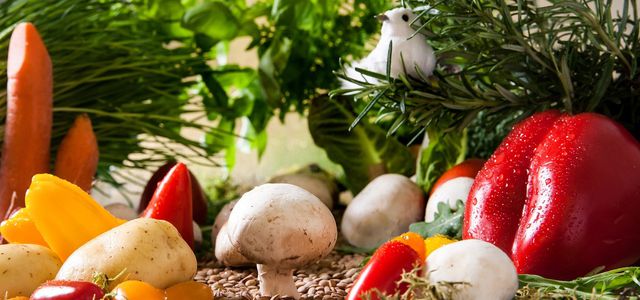Last updated on October 23rd, 2023 at 08:51 pm
Alkaloids are among the secondary plant active substances. They are contained, for example, in potatoes, tomatoes or coffee. Alkaloids can have a positive effect on health. Here you can find out what you need to bear in mind.

Contents
What are alkaloids?
Alkaloids are alkaline substances found in food and stimulant plants. They contain nitrogen and are formed as an end product of plant metabolism. There are up to 8000 different alkaloids. They are formed as derivatives of various amino acids, such as lysine, phenylanaline or tryptophan. The alkaloids serve as feeding protection for plants and regulate plant growth.
Alkaloids can have physiological effects on the organism and are therefore used in many drugs. For example, they have a euphoric or stimulant effect. However, in excessive doses, alkaloids can also be very harmful, as they are among the primary toxic plant substances. They are also found in many stimulants, for example nicotine and caffeine.
Where do alkaloids occur?
According to Dr. O. Ploss (Klostermedizin, Knaur-Verlag), alkaloids occur in 10-15 percent of all plants. Especially nightshade plants such as tomatoes or potatoes contain the plant substances. But they are also found in other typical foods and luxury foods:
- Peppers
- Coffee
- Tea
- Tonic water (drinks containing quinine)
- Opium poppy
- Tobacco
Depending on the nature of their chemical composition, alkaloids are used in medications or dietary supplements.
They are also a component of many intoxicants because they can dock to receptors in the human nervous system and are rapidly absorbed by the body. Many alkaloids (such as nicotine or morphine) can cause strong addictions in humans.
How should alkaloids be evaluated from a health perspective?
Because of their effect on the human organism, alkaloids are used in medicines or food supplements.
- Some alkaloids, such as vincristine, are said to be used in the treatment of cancer. Scientific evidence of their effects is not yet available.
- Other alkaloids such as quinine, ephedrine or berberine are also components of various drugs and can have anti-bacterial and anti-viral effects.
- Steroids, which are also alkaloids, also have important functions as hormones in animal and human organisms.
- However, as already mentioned, alkaloids are not harmless. Because of their mind-altering properties, they are often found in intoxicants. In higher doses, they can even be life-threatening.
The alkaloid solanine, for example, which occurs in the green parts of tomatoes or potatoes, can cause gastrointestinal complaints, faintness, headaches or shortness of breath. Therefore, it is recommended to store vegetables containing alkaloid in a place protected from light and to prepare them ripe (tomatoes) and without green parts (potatoes). Since solanine is water-soluble, it is also recommended to pour away the cooking water.


